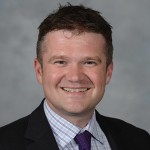So where do you find tax specialists? Almost anywhere is the answer. Accountancy and law firms of all shapes and sizes employ teams of tax specialists to advise their clients on how best to minimise the impact of tax on their business activities, and in turn, the vast majority of UK and multinational companies employ ‘in-house’ tax specialists to help them manage the burden of tax compliance and position their tax strategy effectively. In addition to private sector commercial enterprises, you may also find tax specialists in educational establishments and other public sector bodies.
Whereas historically HM Revenue & Customs used to be the first step on the ladder into a career in tax, since the late 1990s, the larger accountancy firms have developed their own graduate training programmes into tax and these days there is a distinct preference for ‘growing one’s own talent’.
Entry level tax careers
As an entrant into the tax discipline, one specialises from the very start in one distinct discipline i.e Corporate, Personal or Indirect Tax (mainly VAT, but can be Customs/Excise Duty). A strong academic background is a prerequisite (a 2.1 degree from a reputable university is usually essential) and other criteria for graduate entry into tax are interpersonal skills, commercial awareness, an eye for detail and an adaptable approach.
Graduate level tax careers
As a graduate entrant into tax, one studies towards a professional qualification. There are two main routes to qualification: one, for those keen to jump straight into a tax qualification, is the Associate Tax Technician (ATT) followed by the Chartered Tax Adviser (CTA). The other is via an Associate Chartered Accountant (ACA) or Institute of Chartered Accountants of Scotland (ICAS) training contract followed by a CTA qualification.
Going down the accounting and tax route is normally recommended for those wanting to pursue a career in corporate tax, as an ability to read and understand how accounts are put together is useful and further down the line, if you want to work in-house, an invaluable skill to have. The CTA route works well for those focusing on personal tax. Graduates into Indirect Tax may take the ‘VAT route’ of the CTA, in addition to the Associate of the Institute of Indirect Tax qualification (AIIT) is gaining ever increasing recognition as an alternative.
Working in tax
As well as your studies, there’s the day job: learning the ropes of what makes a successful tax consultant; such as developing analytical skills i.e. the ability to interpret complex technical data and translate it into practical and effective advice, as well as client handling and business development ability. Contrary to popular belief, tax is not a desk bound career; you will have a large amount of client contact on a daily basis. In the largest accountancy firms, secondments to a client or overseas occasionally arise.
In the ‘Big Four’ accountancy firms, one tends to specialise in a particular sector, for example finance, mid-markets, consumer and industrial products or technology and information. In the mid-tier and smaller accountancy firms, one tends to deal with a broader array of client types, although some specialise in a particular sector (e.g. landed estates, charities or the not for profit field).
The majority choose to carve out successful long-term tax consultancy careers in the profession, whether as part of a ‘Big Four’ or mid-tier firm, or indeed a law firm or an independent practice. However, with a couple of years’ practical experience under your belt and armed with your tax qualification, you may choose to take your knowledge ‘in-house’. Businesses involved in banking, insurance, property, funds, retail, manufacturing, energy, telecommunications, technology, media, arts, entertainment, travel and transportation all regularly recruit tax specialists.
Tax as a discipline is becoming increasingly international in nature and there are fewer barriers to transferring your tax expertise to a different country’s jurisdiction. The US, Australia, Central and Eastern Europe and the Far East all provide their own unique set of technical and commercial challenges for the internationally mobile tax specialist.
Benjamin Franklin said, ‘In this world, nothing is certain but death and taxes.’ Another certainty is that a career in tax can provide you with a wide variety of professional and personal opportunity.
Find out more about career opportunities in tax.





